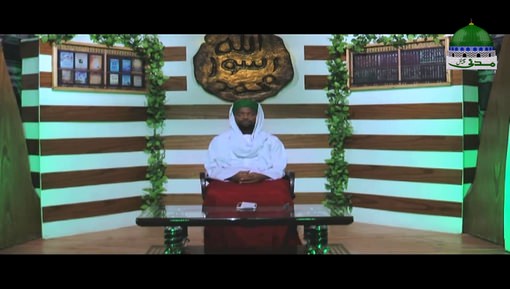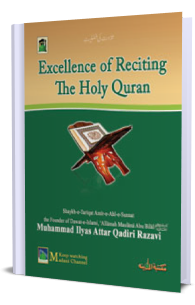
The Creed of Islam
Pious Predecessors and Their Worship of Allah
(Part 3/3)
Adnan Chishti Attari Madani
Spending nights in the worship of Allah Almighty, as well as reciting the Quran, and offering supererogatory prayers during the day and night were all integral practices of the godly men and women of this Ummah. In this article, we will draw on the lives of these revered figures and explore their commitment to the worship of Allah Almighty.
Pious Predecessors Who Recited the Quran in Abundance
1. During Ramadan, Imam al-Bukhari رَحْمَةُ الـلّٰـهِ عَلَيْه would read the whole Quran during the day, and recite all of it each night in his supererogatory prayers after Tarawih, (Irshad-us-Saari, vol. 1, p. 64).
2. Imam Abu Bakr Muhammad b. Ali al-Kattani رَحْمَةُ الـلّٰـهِ عَلَيْه was a renowned saint who completed the recitation of the Quran twelve thousand times while performing Tawaf, (Siyar A’laam-un-Nubala, vol. 11, p. 469).
3. For forty years, Imam Abu Bakr b. Ayyash رَحْمَةُ الـلّٰـهِ عَلَيْه completed a reading of the whole Quran every morning and night, (Siyar A’laam-ul-Nubala, vol. 7, p. 686).
4. Sayyiduna Thabit al-Bunani رَحْمَةُ الـلّٰـهِ عَلَيْه would complete one Quran every day. While he fasted during the day, he spent the nights in the worship of his Lord. Whenever passing a masjid, he would offer two cycles of Tahiyya-tul-Masjid in it. He spoke of this blessing, stating, ‘I have completed the Quran and pleaded in the court of Allah Almighty at every pillar of the Jami’ Masjid.’ His heartful commitment to Islam and dedication to the worship of Allah Almighty is truly commendable. Even after his demise, visitors would hear Quran recitation from his shrine, (Hilya-tul-Awliya, vol. 2, pp. 364-366, selected and summarised).
5. Sayyidatuna Hafsah رَحْمَةُ الـلّٰـهِ عَلَيْهَا, the sister of Imam Muhammad b. Sireen رَحْمَةُ الـلّٰـهِ عَلَيْه, is a pivotal figure from the Successors (tabi’in). Only leaving her cloister for essential matters, she spent thirty years engrossed in worship, reciting half of the Quran every night and fasting every day of the year, except the days of Eid and Tashreeq. Her maid described her as ‘an exceptionally pious woman who, despite not committing mistakes, spent her nights in prayer, crying [in repentance]’. She رَحْمَةُ الـلّٰـهِ عَلَيْهَا would burn a lantern at night and stand for worship. On several occasions, the lantern went out but her home remained illuminated until morning, (Sifa-tul-Safwa, juz 4, vol. 2, pp. 21-22).
6. Sayyiduna Abu Abdullah Muhammad b. Khafeef Shirazi رَحْمَةُ الـلّٰـهِ عَلَيْه (d. 371 AH) states: ‘During my early days, I would sometimes recite Surah Ikhlas ten thousand times in one cycle of prayer and sometimes the entire Quran in one cycle. At times, I offered one-thousand cycles of supererogatory prayers between morning and late afternoon, (Risalah Qushayriyyah, p. 82).
7. Imam Diya al-Din al-Maqdisi رَحْمَةُ الـلّٰـهِ عَلَيْه described the high-ranking saint (Qutb), Imam Abu Umar Muhammad b. Ahmad Maqdisi رَحْمَةُ الـلّٰـهِ عَلَيْه, in these words:
Whenever he رَحْمَةُ الـلّٰـهِ عَلَيْه would hear a supplication, he would memorise it and incorporate it into his supplications. If he learned about a supererogatory prayer, he would offer it, and upon learning a hadith, he would act upon it. Despite his old age, he would lead people in one-hundred cycles of prayer on the auspicious night of mid-Sha’ban; and from all those who were present, he would remain the most energetic and fresh. Even in his younger years, he never stopped worshipping at night. I accompanied him in many battles, and some of us decided that one of us will stay awake to stand guard while the rest sleep. So Shaykh Abu Bakr رَحْمَةُ الـلّٰـهِ عَلَيْه told us to sleep and began to pray, continuing throughout the night. Sayyiduna Ahmad b. Yunus al-Maqdisi رَحْمَةُ الـلّٰـهِ عَلَيْه said: ‘It was his habit during a journey to offer prayers at night and to protect the lives and possessions of his companions.’ His son, Abdullah, said ‘He would recite one section (manzil) of the Quran every night in salah and one section daily between Dhuhr and Asr, (Tareekh-ul-Islam lil Zahabi, vol. 43, p. 267). Every night, he رَحْمَةُ الـلّٰـهِ عَلَيْه prayed seventy-two cycles of supererogatory prayers, (Tareekh-ul-Islam lil Zahabi, vol. 43, p. 268).
Praying Fajr with the Wudu of Isha
The son of the great narrator of the Sihah Sittah (6 canonical works of Hadith), Sulayman b. Tarkhaan al-Taymi رَحْمَةُ الـلّٰـهِ عَلَيْه states the following about his father: ‘For forty years, my father fasted on alternate days and prayed Fajr with the wudu of Isha,’ (Siyar A’laam-un-Nubala, vol. 6, p. 398).
Sayyiduna Raqabah b. Masqalah رَحْمَةُ الـلّٰـهِ عَلَيْه states: ‘I saw Allah Almighty [in a dream] and He said, ‘I will grant honour to the resting place of Sulayman al-Taymi for he prayed Fajr with the wudu of Isha for forty years,’ (Siyar A’laam-un-Nubala, vol. 6, p. 197; Jami’-ul-Usool fi Hadees-ur-Rasool, vol. 13, p. 150, Raqm 1117).
Sayyiduna Sulayman b. Tarkhaan رَحْمَةُ الـلّٰـهِ عَلَيْه would pray all night until dawn. He would then pray Fajr with the wudu of Isha. He and his son, Mu’tamar, would visit various masjids at night; praying in one masjid and then in another, until the time of dawn,’ (Tahzeeb-ul-Kamal, vol. 12, p. 8).
Imam Abu Taalib al-Makki رَحْمَةُ الـلّٰـهِ عَلَيْه states: ‘A total of approximately forty Successors are known to have prayed Fajr with the wudu of Isha for thirty or forty years.’ He then mentioned the names of those saints from Makkah, Madinah, Yemen, Syria, Kufa, Ibaad, Iran, and Basra, who held this accolade, (Qoot-ul-Quloob, vol. 1, p. 83).
Imam al-Dhahabi رَحْمَةُ الـلّٰـهِ عَلَيْه and Ibn al-Jawzi رَحْمَةُ الـلّٰـهِ عَلَيْه narrate that Sayyiduna Abdul Wahid b. Zayd رَحْمَةُ الـلّٰـهِ عَلَيْه prayed Fajr with the wudu of Isha for 40 years, (Siyar A’lam-un-Nubala, vol. 7, p. 178; Hifz-ul-‘Umr li Ibn Jawzi, p. 51).
The most celebrated jurist in Islamic history, Imam Abu Hanifah رَحْمَةُ الـلّٰـهِ عَلَيْه was not only a master jurist but a committed ascetic who for thirty years fasted continuously and completed the Quran in a single cycle of prayer. For forty [-five] years, he prayed Fajr with the wudu of Isha. He completed seven thousand readings of the Quran in the very place where he breathed his last, (Khayraat-ul-Hisaan, p. 50).
Shaykh Abu Abdullah Muhammad al-Harawi رَحْمَةُ الـلّٰـهِ عَلَيْه states, ‘I served Shaykh Abdul Qaadir al-Jilani رَحْمَةُ الـلّٰـهِ عَلَيْه for forty years; throughout that time, he prayed Fajr with the wudu of Isha. If he became without wudu, he would immediately renew it and then offer two cycles of prayer,’ (Bahjat-tul-Asraar, p. 164).
There are further narrations about many other righteous predecessors such as Sayyiduna Sa’eed b. Musayyib, Sayyiduna, ‘Amr b. ‘Ubayd, Sayyiduna Wahb b. Munabbih, and Sayyiduna Abdur Rahman b. Aswad رَحِمَهُمُ الـلّٰـه confirming that they prayed Fajr with the wudu of Isha.
May Allah Almighty shower his infinite mercy upon these noble souls and grant us commitment and sincerity like theirs.
اٰمِیْن بِجَاہِ النَّبِیِّ الْاَمِیْن صَلَّی اللہ تَعَالٰی عَلَیْہِ وَاٰلہٖ وَسَلَّم













Comments